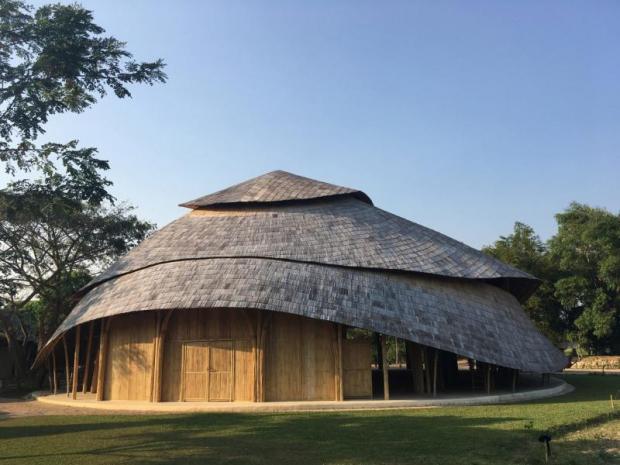Archifest 2018, now being held at the Marina Bay Sands in Singapore, is not just an exhibition which brings together architects and designers. It is also where everyday people can join in celebration of "the built environment".
"It is also to demonstrate being an architect in the 21st century. It is not only designing buildings, it is also designing public spaces," festival director Yann Follain said. "We believe that architecture can improve the daily life of people."
This year's theme "Design For Life", is split into three sub-themes: design for people, design for time and design for environment. Each of these sub-themes discusses how architecture interacts with these parts of society.
Design for people is about creating designs that promote a better life and well-being for people in the built environment. Design for time discusses what to do with ageing buildings and how to design buildings that stand the test of time. And design for environment, similar to design for people, looks at how architecture can be used to improve the life of our planet.
Although Archifest offers many exhibits and workshops, the Singapore Institute of Architects (SIA) Conference was Archifest's main event. The conference gathered everyone from industry movers and shakers to up-and-coming designers and architects, providing an open forum for conversations on the issues pertinent to the urban environment here and around the world.
One of the conference speakers was Markus Roselieb from Chiang Mai Life Construction (CLC) whose creations are being published around the world.
Vienna-born Roselieb has been in Thailand for many years. While first living in Bangkok, Roselieb moved to Chiang Mai about 10 years ago because, as he puts it, "we found it provides a great mix of nature, culture and interesting people".
Roselieb and his company Chiang Mai Life Construction are known for their eco-friendly bamboo and earth designs, frequently using natural building materials -- like wattle and daub, and adobe -- and practices like rammed earth in their designs.
According to Roselieb, this year's theme, Design For Life, fits perfectly with the philosophy of CLC.
"Design For Life is exactly what we have at the core of our design process. That is why we call ourselves Chiang Mai Life Architects. Quality of life of a home, office building, school is the most important criteria," said Roselieb. "If we create a school where the children don't want to go home at the end of the school day because they love it there, we have achieved Design For Life. If we create a home where the owner does not have to jump in the car and drive somewhere else on every free moment, we have created a space worth living."
For Roselieb, architecture began as just an interest, but through observation and continuous learning, it became a lifelong passion. Two of the major influences in his designs come from two places. The first, his mind. He says everything he's seen or designed in the past is sort of stored in his subconscious and gets triggered during certain projects, depending on what he is designing. The second is nature.
"[My style] is organic curves that integrate a building into its environment, use the material to their fullest and at the same time inspire a happy feeling in the observer," says Roselieb. "I see a strong influence by nature's forms.
"I am not a friend of building boxes."
Both nature and the environment are huge parts of his business in design of buildings and materials used for the construction, so when asked "why it's important for him to practice sustainable and green architecture?" he posed a question of his own.
"Why should it be impossible for any good architect to include sustainability in his work?" says Roselieb. "How can we really understand a project fully without looking at its integration in its environment on different scales, from close physical proximity to the message it spreads countrywide."



Bamboo Sports Hall at Panyaden International School. Photos: Alberto Cosi

Erber Research Center and Lecture Hall at Kasetsart University, Thailand. Photo courtesy of Chiang Mai Life Architects
Archifest 2018 ends today. Visit archifest.sg for more information.

